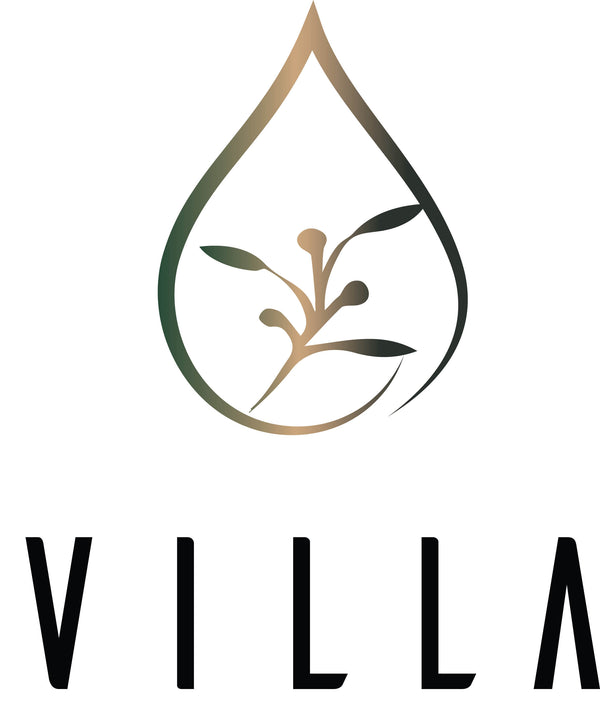
Olympia
For over a thousand years, the Olympic Games were held every four years in Olympia, Greece. Wars were interrupted to give athletes the opportunity to compete with the best. Olive oil played a major role. Gold medals didn't exist yet: the winner received an amphora filled with fresh olive oil. But athletes also consumed olive oil extensively before competition. It provided them with energy, healed wounds, and prevented infections.
Polyphenol-Rich Olive Oil
Two thousand years later, olive oil still plays a major role in sports. Athletes need energy-rich food that is available for extended periods ("zone 2"). That's olive oil. This high-quality, polyphenol-rich olive oil (recognizable by its bitter taste and peppery aftertaste) is packed with substances that help suppress pain, accelerate recovery, promote testosterone production, heal inflammation, maintain a healthy digestive system, and contribute to concentration and mental strength. Polyphenol-rich olive oil is pressed from early-harvested olives. These contain less oil (so you need more olives for a liter of oil), but provide essential nutrition for elite athletes. The powerful properties of the polyphenols contribute to their performance and recovery in several ways.
Reduction of oxidative stress
Intensive training leads to increased free radical production in the body, which can cause cell damage and oxidative stress. The vitamins and polyphenols in olive oil are powerful antioxidants that neutralize these free radicals, helping to protect cells and minimize damage.
Accelerated muscle recovery
After intense training, micro-inflammation occurs in the muscles. The anti-inflammatory properties of polyphenols, particularly oleocanthine, can reduce these inflammatory responses. This leads to faster muscle recovery and less muscle soreness.
Immune system support
Elite sports can temporarily weaken the immune system, making athletes more susceptible to infections. The antimicrobial and immune-boosting properties of polyphenols help the body better protect itself against pathogens, keeping elite athletes healthier.
Better Skin
Many elite athletes experience skin problems, particularly due to the inflammation and infections described above. Polyphenol-rich olive oil helps improve skin both internally (as a food) and externally (as a skin lotion).
Improved Cardiovascular Health
A healthy cardiovascular system is crucial for athletes. Polyphenols help lower blood pressure and protect blood vessels, which improves overall cardiovascular function and reduces the risk of cardiovascular disease.
Natural Anti-Inflammatory and Pain Reliever
Polyphenols such as oleocanthal act as a natural anti-inflammatory and have effects similar to ibuprofen. This can help relieve pain and stiffness after strenuous exercise or overuse injuries.
Optimized Energy Production
The fatty acids in olive oil are an excellent source of energy. Polyphenols help maintain healthy mitochondria (the cell's powerhouses), which improves energy production efficiency.
Improved Nutrient Absorption
Olive oil is a healthy fat source that improves the absorption of fat-soluble vitamins (A, D, E, K) and other bioactive compounds. This is essential for optimizing nutrition and athlete recovery.
Joint Protection
Due to their anti-inflammatory properties, polyphenols can help reduce inflammation in the joints, which is important for athletes who put significant strain on their joints, such as runners and weightlifters.
Muscle Mass Support
The anti-inflammatory effects of olive oil indirectly contribute to muscle building. By reducing inflammation, the body is able to focus on repairing and regenerating muscle tissue.
Overall Well-Being and Prevention
Besides their specific sports-related benefits, polyphenols contribute to overall health and well-being. They reduce the risk of chronic diseases, which benefits the career and quality of life of a top athlete in the long term.
Testosterone
Testosterone production is crucial for elite athletes, both men and women. This hormone plays a crucial role in various physiological processes directly related to athletic performance, recovery, and overall well-being.
Testosterone is an anabolic hormone, meaning it promotes protein synthesis. This is the process by which the body produces proteins to repair and strengthen damaged muscle fibers after training. Higher testosterone levels lead to more efficient recovery and greater increases in muscle mass and strength, which is essential for strength athletes, sprinters, and other athletes who require explosive power.
Intense training causes micro-damage in muscle fibers. Testosterone helps accelerate the recovery process. Along with growth hormone and insulin, it is one of the most important recovery hormones. A good balance between training load and recovery hormones is crucial to prevent overtraining and injuries. Testosterone also contributes to bone health and bone density. Strong bones are vital for elite athletes because they reduce the risk of stress fractures and other injuries, especially in high-impact sports.
Testosterone also influences mental well-being. It can increase an athlete's energy, motivation, aggressiveness, and focus. This can lead to higher training intensity and improved performance. A lack of testosterone can lead to fatigue, lethargy, and a lack of drive, which can significantly hinder performance.
Testosterone also helps prevent muscle breakdown (catabolism), especially during intense training or a calorie-restricted diet. This helps preserve muscle and utilize amino acids more efficiently.
There are natural ways to increase testosterone. Heavy, compound exercises such as squats, deadlifts, and bench presses, in particular, stimulate testosterone production. Most testosterone production occurs during deep sleep. Therefore, sufficient and good-quality sleep is crucial. A diet rich in healthy fats (such as those in olive oil), proteins, and vitamins (particularly zinc and vitamin D) is essential for healthy hormone balance. The bitter substance in olive oil (oleuropein) has been linked in several studies to increased testosterone production.
Other Benefits
In other blogs on this website, you'll find research showing that polyphenol-rich olive oil also offers many other benefits. It prevents cancer, dementia and Alzheimer's, it has anti-ageing properties and improves cognitive functions.
In short, if you already add olive oil as a healthy fat to your diet, you'd be wise to replace it with polyphenol-rich olive oil. Such an olive oil has bitter notes and a peppery aftertaste. The olive oil with the highest polyphenol content is EH1200.
